Make Real began working with EDF Energy in early 2014, making the organisation one of our earliest immersive technology clients to date. As an organisation, they were keen to explore and embrace emerging immersive technologies for learning & development, training and simulation, to create appeal to the workforces of the future and to apply their “Learn by Doing” mantra to practical and theoretical training scenarios.
Currently, there are 20 projects co-designed with a variety of departments of EDF Energy, HPC and NNB organisations, deployed across the country, covering the full range of immersive technologies, from tablets to Virtual and Augmented Reality to custom hardware installations, from classrooms to offices to training suites.
EDF Energy have always adopted our suggested approach of ‘start small and iterate’, creating a range of proof-of-concepts to explore opportunities and capabilities of emerging technologies, evaluating them to determine what works, what to keep and what to put aside or ignore for now. They have also appreciated and adopted our thinking out of the box and alternative angles of approach, compared to other traditional learning providers.
Through this approach, they have minimised risks and costs early on, allowing development of content to focus on core scenarios or objectives to measure effectiveness against, before determining where to increase budgets, complexity and scale accordingly.
Similarly as a result of our main development occurring within the Unity 3D engine, and careful design and development enabling re-use and optimisation of assets, further costs and development effort has been saved through streamlined process pipelines and ability to re-purpose content across technology stacks.
Many of the projects have been installed at Cannington Court, during the multi-million-pound refurbishment of the Grade-II listed building as the digital centre of learning excellence undertaken by EDF Energy, as part of the wider employee training and community engagement works around the Hinkley Point C (HPC) nuclear power station construction.
Other projects have found themselves in other locations, including but not limited to, the fleet of nuclear power station control room training simulators, Glasgow Science Centre, other EDF Energy offices around the UK, and even an inflatable biodome in various fields connected to schools for girls in England.
| Year | Project | Description | Technology |
|---|---|---|---|
| 2014 | Learning Materials | Conversion of 80-odd PowerPoint slides on Fundamentals of Nuclear Power training to 3D tablet content | Tablet |
| 2014 | Reactor Builder | 4D puzzle challenge to piece together primary circuit of nuclear power station with 3 difficulty levels against the clock with bronze/silver/gold rewards | VR |
| 2014 | Reactor Runner | 12-player networked game (4 teams x 3 ppl) opertating a nuclear power station over simulated 18 months, taking turns for each role (x3) | Tablet |
| 2014 | Go H20 | “Super Monkey Ball” racing game as water molecule navigating around inside components of nuclear power station primary circuit | Tablet |
| 2015 | The Prioritiser | Time and task management tablet game to encourage learners to understand task deadlines, priorities, criteria | PC |
| 2016 | Reactor Runner | Single player version installed into physical arcade cabinet with manual controls, deployed at Glasgow Science Museum and EDF Cannington Court | PC |
| 2016 | The V.O.I.D | Demonstrator of tech to showcase interactions with motion tracked controls, allowing user to inspect pumps & valves | VR |
| 2016 | Reactor Builder | Asymmetrical version used as part of the nationwide touring “Pretty Curious” STEM awareness campaign | VR |
| 2017 | HPC Explorer | Exploratory 3D AR environment of Hinkley Point C (HPC) with info points about finished construction | AR |
| 2017 | iMAP HPC | GPS- positioned tablet information app for HPC construction onsite visitors with 360º videos | Tablet |
| 2017 | iMAP HPC | Online HTML5 web-based information application with 360º videos | WebXR |
| 2017 | iMAP HPC | Touchscreen TV version for HPC Visitors Centres | Tablet |
| 2018 | iMAP HPC | Site tableaux version with 360º videos and final renders | VR |
| 2018 | Click Mobile | Smart meter (SMETS2) training for environmental awareness around installation process beyond just the specific task of installing a new meter | VR |
| 2019 | Sentinel | Physical installation of Raspberry Pi/Arduino and 2D training content for MVARS energy generation/supply market reporting in nuclear power station control room simulator | PC |
| 2019 | Sales Toolkit | Enterprise Energy sales toolkit for team to demonstrate specific ways to save energy at work | Tablet AR |
| 2019 | Sales Toolkit | Online HTML5 version | WebXR |
| 2020 | To Be Revealed | Currently in development | ? |
Across the board, the range of immersive learning experiences created for EDF Energy have enabled many of the following benefits for training, either individually or as part of a blended learning suite of applications to cover a breadth of content:
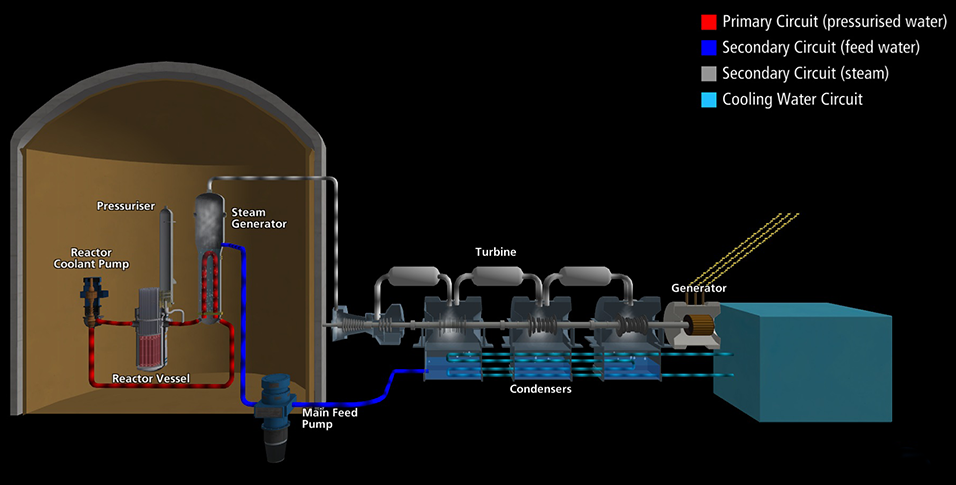
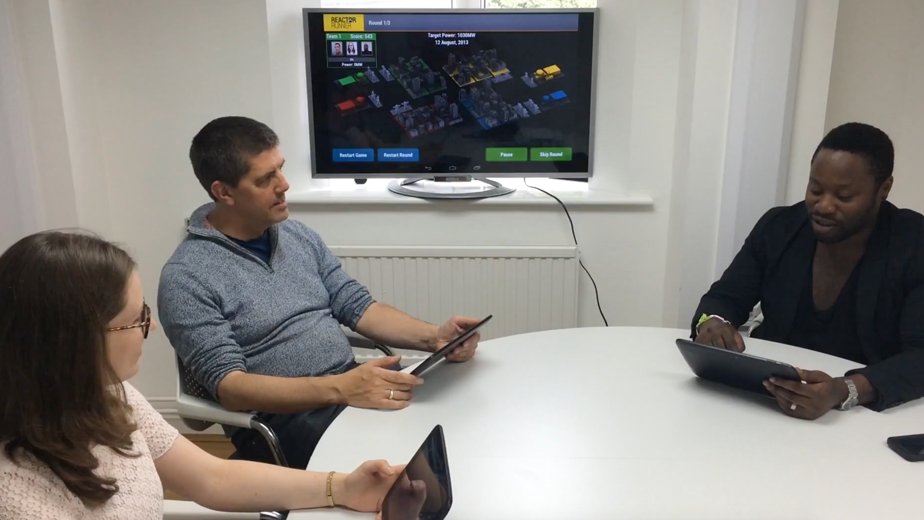
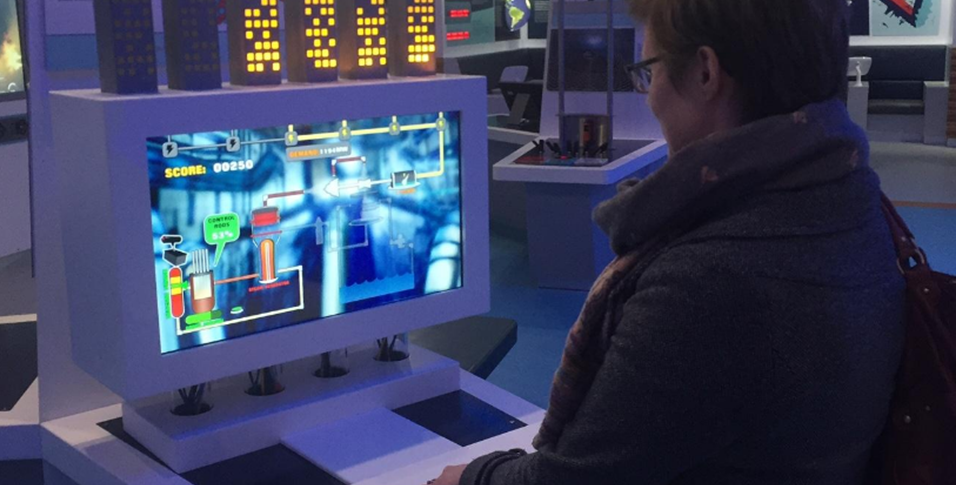
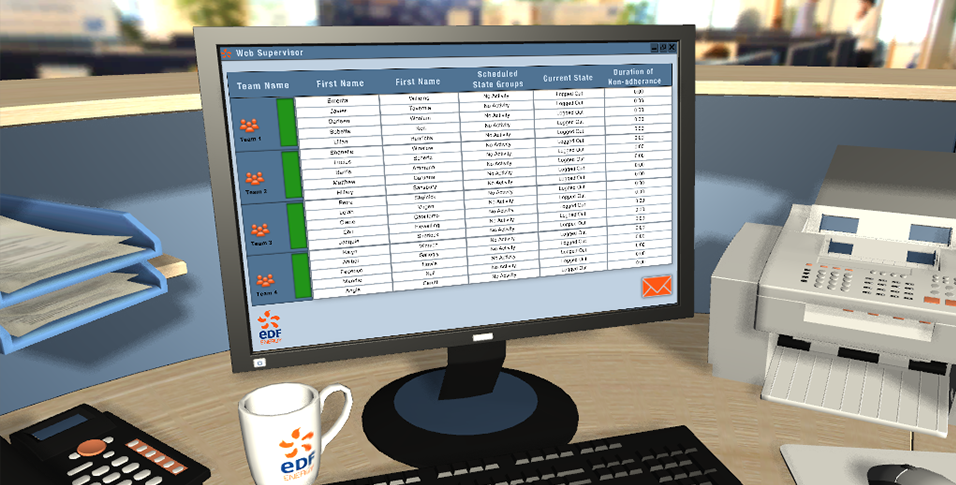
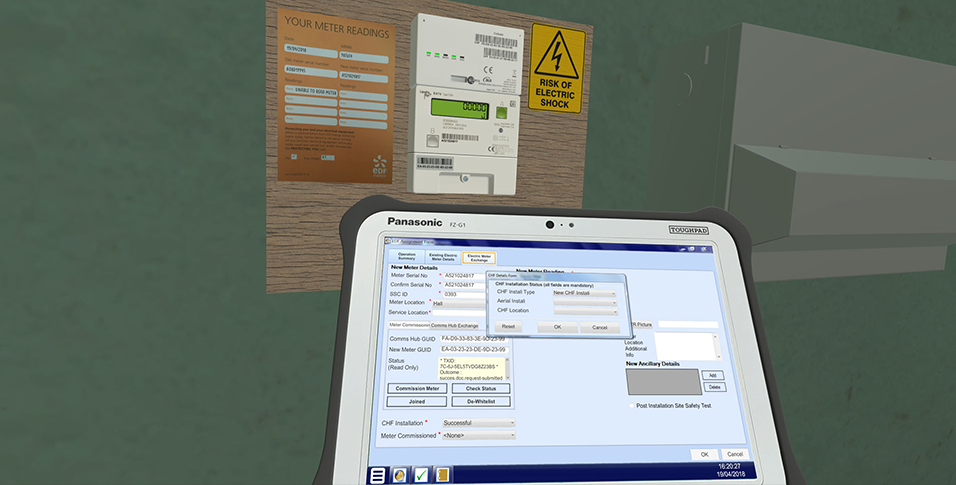
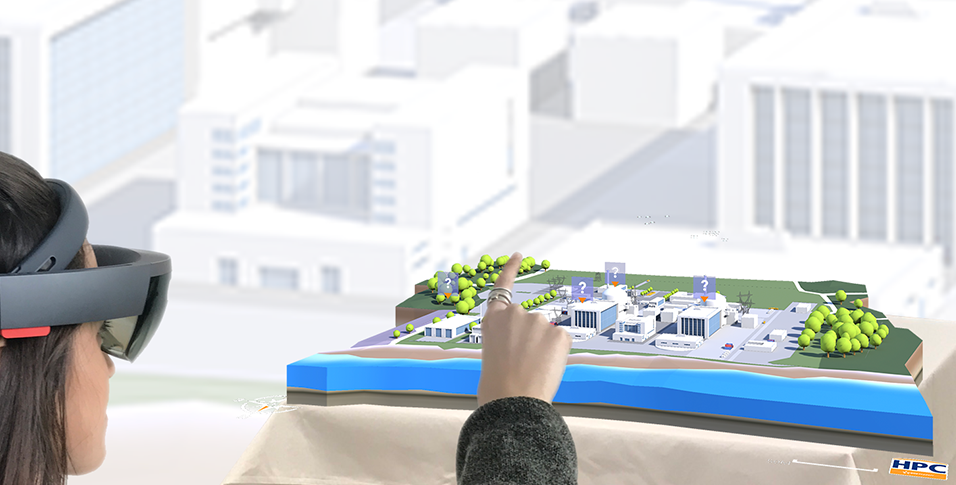
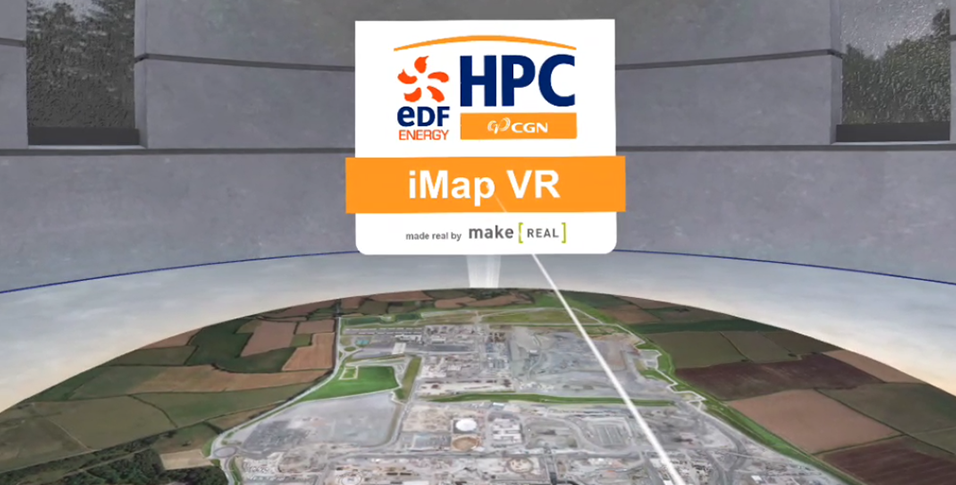
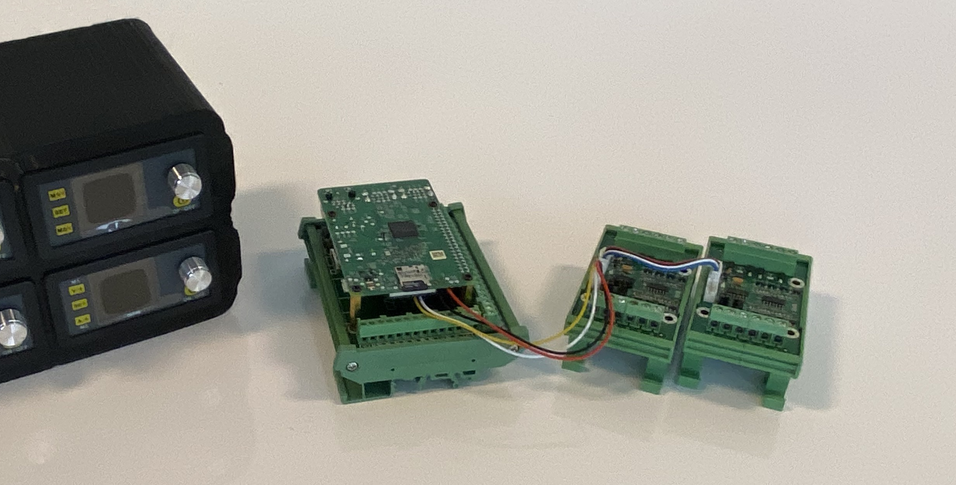
We’re always happy to talk to you about how immersive technologies can engage your employees and customers. If you have a learning objective in mind, or simply want to know more about emerging technologies like VR, AR, or AI, send us a message and we’ll get back to you as soon as we can.